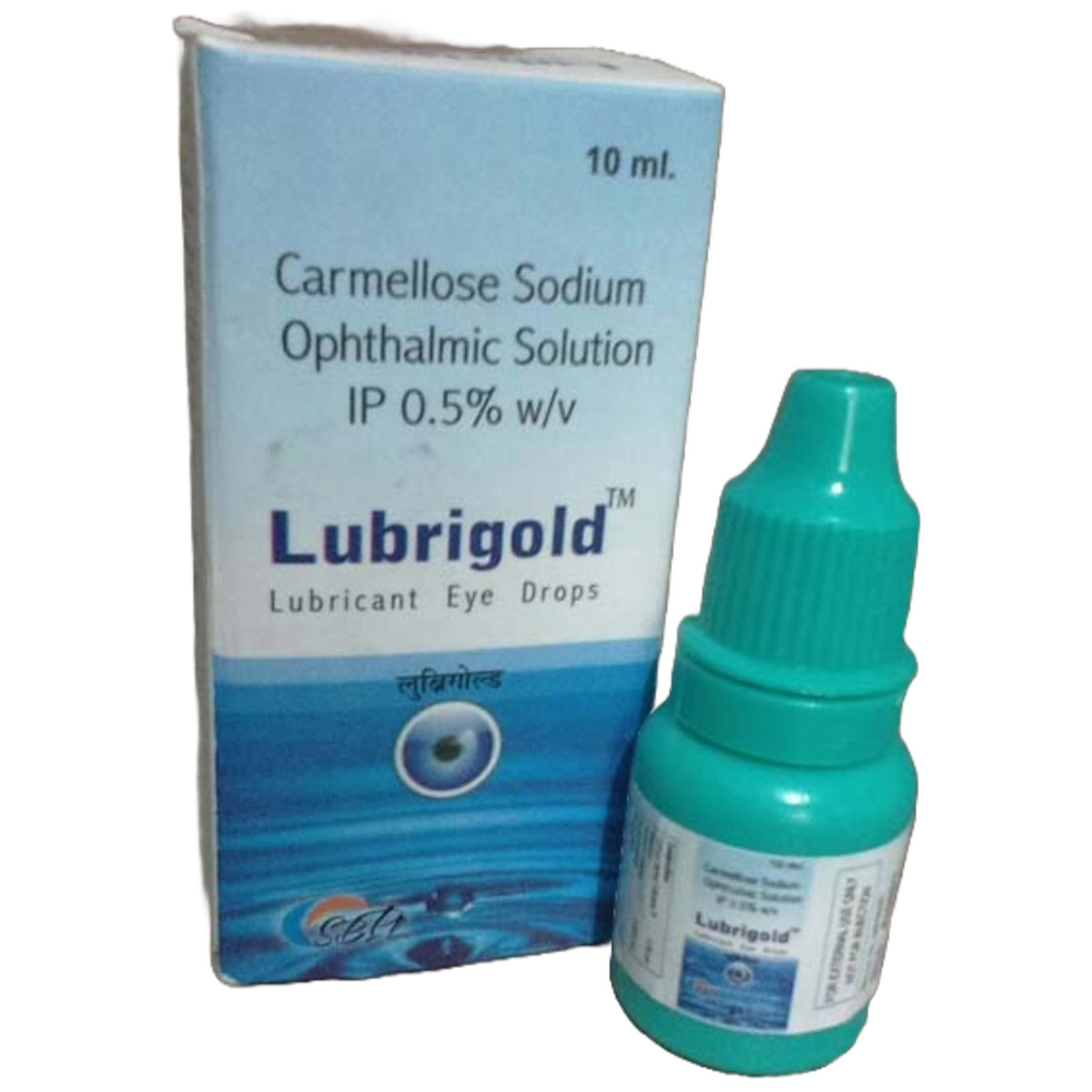Carboxymethyl Cellulose
About Carboxymethyl Cellulose
Carboxymethyl Cellulose belongs to the class of medicines called 'ophthalmic lubricants' generally used to treat dry eye disease. Dry eye disease is a common condition that occurs if you don't produce enough tears or if you produce poor-quality tears. This tear instability leads to inflammation and damage to the eye's surface.
Carboxymethyl Cellulose contains carboxymethylcellulose that works by increasing tear viscosity in the eye. It works similarly to natural tears. It provides moisture to the eye and relieves the irritation caused by the dryness of the eye. It also makes a protective film in the eye to prevent dryness of the eyes. In this way, it provides temporary relief from the burning and discomfort of the eye.
You are suggested to take $ame as long as your doctor has suggested it after checking your medical condition. Some of the minor side effects are burning/stinging/ irritation may occur temporarily. Whereas serious side effects are eye pain, eye redness/irritation may occur. If it persists, take the advice of your doctor.
Before using this Carboxymethyl Cellulose, tell your doctor if you are allergic to any one of the medicine components and wash the hands before using the Carboxymethyl Cellulose to avoid contamination. Do not touch the bottle's tip to avoid contamination, and replace the cap tightly after each use. Do not use the solution, which is color changed, and cloudy in appearance. It is for external use only and use before the expiration date. Do not change or stop the dose of medicine without informing your doctor. Do not drive or use machinery or perform any activity until your vision is clear as Carboxymethyl Cellulose causes temporary blurred vision.
Uses of Carboxymethyl Cellulose
Medicinal Benefits
Carboxymethyl Cellulose contains carboxymethylcellulose that works by increasing tear viscosity in the eye. It works similarly to natural tears. It provides moisture to the eye and relieves the irritation caused by the dryness of the eye. It also makes a protective film in the eye to prevent dryness of the eyes. In this way, it provides temporary relief from the burning and discomfort of the eye.
Directions for Use
Storage
Side Effects of Carboxymethyl Cellulose
- Irritation
- Burning sensation
- Pain at the application site
Drug Warnings
Before using this Carboxymethyl Cellulose, tell your doctor if you are allergic to any one of the medicine components and wash the hands before using the Carboxymethyl Cellulose to avoid contamination. Do not touch the bottle's tip to avoid contamination, and replace the cap tightly after each use. Do not use the solution, which is colored changed, and cloudy in appearance. It is for external use only and use before the expiration date. Do not change or stop the dose of medicine without informing your doctor. Do not drive or use machinery or do any activity until your vision is clear because Carboxymethyl Cellulose causes temporary blurred vision.
Drug Interactions
Drug-Drug interactions: No drug interaction found.
Drug-Food interactions: No food interaction found.
Drug-Disease interactions: No disease interaction found.
Drug-Drug Interactions Checker List:
Safety Advice

Alcohol
cautionCarboxymethyl Cellulose should be taken as advised by your doctor.

Pregnancy
safe if suggestedCarboxymethyl Cellulose is probably safe to use in pregnancy. But it should be used only when suggested by a doctor if he/she thinks the benefits overweigh the risks.

Breast Feeding
safe if suggestedCarboxymethyl Cellulose is probably safe to use in breastfeeding mothers. But it should be used only when suggested by a doctor if he/she thinks the benefits overweigh the risks.

Driving
cautionAfter application of the Carboxymethyl Cellulose vision may be unclear, so take sometime and relax and then go for a drive.

Liver
safe if suggestedCarboxymethyl Cellulose is probably safe to use in liver diseases. Please consult your doctor before using Carboxymethyl Cellulose.

Kidney
safe if suggestedCarboxymethyl Cellulose is probably safe to use in kidney diseases. Please consult your doctor before using Carboxymethyl Cellulose.

Children
safe if suggestedCarboxymethyl Cellulose should be used in children only when suggested by a child specialist.
Habit Forming
Diet & Lifestyle Advise
- Take fish in your diet which has omega-3 fatty acids that may counter dry eyes.
- Leafy greens are rich in vitamin C that contributes to eye health.
- Drink more water, it has a big part to play in tear production.
- Avoid air blowing in your eyes.
- Take eye breaks during long tasks and keep your computer screen below eye level.
- Stop smoking and avoid drinking alcohol.
- Use eyeglasses when you are going out.
Special Advise
- If you wear contact lens, remove them before using Carboxymethyl Cellulose.
- Tell your doctor if your eye condition persists or worsens after 3 days.
Patients Concern
Disease/Condition Glossary
Dry eye disease (DED): Dry eye disease is a common condition that occurs when your tears cannot provide adequate lubrication for your eyes. The tearing instability leads to inflammation and damage of the eye's surface. Symptoms include burning sensation, sensitivity to light, eye redness, a sensation of having something in your eyes, watery eyes, blurred vision. It is caused by disruption of the healthy tear film by hormonal changes, autoimmune disease, inflamed eyelid glands, aging, keeping contact lens, and using some antihistamines (fexofenadine), and the people who have undergone laser eye surgery.
FAQs
Carboxymethyl Cellulose should be taken as directed by your doctor. Mostly contact lens is removed while applying drops because medicine deposits occur, vision may be unclear, and overtime leads to reddening eyes.
Better to apply the Carboxymethyl Cellulose first because ointments do not allow the eyedrops into the eye. If ointment is applied first, eye drops will drain from the eye.
Carboxymethyl Cellulose may cause temporary common side effects like burning, stinging, irritation. If it persists, take the advice of your doctor.
Carboxymethyl Cellulose should be used within 4 weeks after breaking the seal of the container or bottle.
If you are using other eye medication or drops or ointments, you should wait for at least five minutes after using Carboxymethyl Cellulose. It is advised to use eye ointment before using eye drops.





